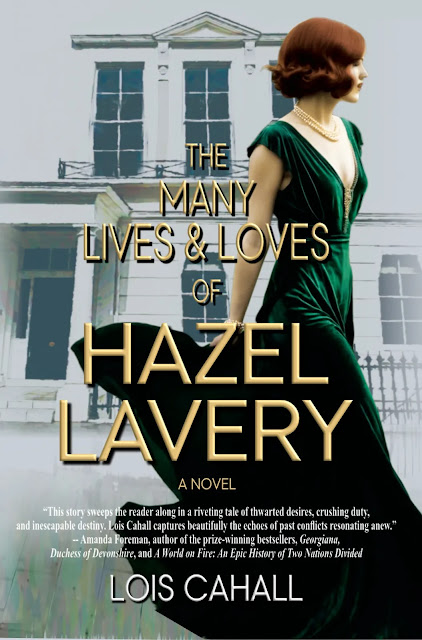By Helen Hollick with Kathy Hollick
Thursday, February 27, 2025
Ghost Encounters: The Lingering Spirits of North Devon by Helen Hollick with Kathy Hollick
By Helen Hollick with Kathy Hollick
Tuesday, February 25, 2025
A Woman’s Lot The Second Meonbridge Chronicle by Carolyn Hughes, narrated by Alex Lee
The Second Meonbridge Chronicle
By Carolyn Hughes
Narrator Alex Lee
Thursday, February 20, 2025
The Many Lives & Loves of Hazel Lavery by Lois Cahall
By Lois Cahall
Lois Cahall began her writing career as a columnist for Cape Cod newspapers and local periodicals, including Cape Cod Life. She spent a decade writing for national magazines (Conde Nast/Hearst). Her articles have been published in Cosmo Girl, Seventeen, SELF, Marie Claire, Redbook, Ladies Home Journal, Reader’s Digest, Men’s Journal, and Bon Appetit. In the UK she wrote for RED, GQ, Psychologies, and for The Times. In addition, Lois wrote profiles for The Palm Beach Post.
Lois’s first novel, Plan C: Just in Case, was a #1 bestseller in the UK, where it remained in the top three fiction for the year before selling into foreign translation markets. In July of 2014, her novel hit #1 on the Nook “Daily Deal” in America. Her second novel, Court of the Myrtles, was hailed as “Tuesdays with Morrie on estrogen” by Ladies Home Journal. Her latest novel, The Many Lives of Hazel Lavery, is a work of bio-fiction (January 2025)
Lois is the former Creative Director of Development for JPE/James (Jim) Patterson Entertainment. She credits her friend, Jim, the world’s most successful bestselling author, with teaching her the importance of children’s love of reading. As a result, she founded the Palm Beach Book Festival in 2015, an annual event bringing in NYT bestselling and celebrity authors. The event is for book lovers, nurturing the written word for the children and adults of southern Florida.
In 2024 Lois also founded The Cape Cod Book Festival, an annual autumn event that promises to be a new cultural footprint in Massachusetts. It will be for locals and ‘washashores’ alike – a magical place where charitably minded readers can rub elbows with great writers and thinkers.
Lois divides her life between New York and Cape Cod, although her spiritual home is London. But most importantly, Lois can do the Hula Hoop for an hour non-stop and clear a Thanksgiving table in just under ten minutes.
Website • Twitter • Facebook • Instagram • Threads • Bluesky • BookBub • Amazon Author Page
Love Lost In Time by Cathie Dunn
Love Lost In Time By Cathie Dunn A reluctant daughter. A dutiful wife. A mystery of the ages. Languedoc, France, 2018 Historian Madeleine ...

-
Please join me in welcoming historical fiction author, Heather Miller onto Oh look, another book. Heather Miller is taking her book, ...
-
Would you look at that, another great book! I am so excited to have author, Jennifer M. Lane, on Oh Look, today. Scroll down more to find...
-
I am so excited to welcome A. M. Linden onto Oh Look, Another Book! today. You have to check our A. M. Linden's novel - The Oath...


















